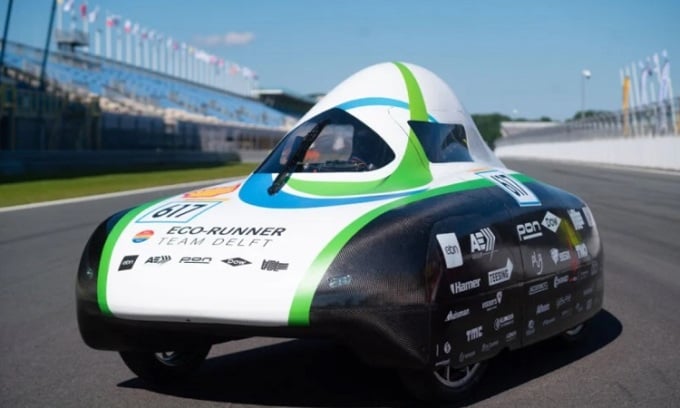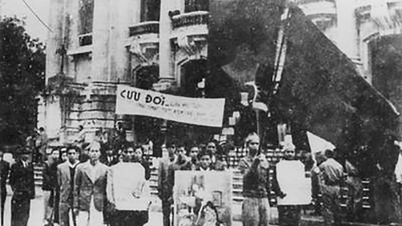Netherlands The Eco-Runner XIII three-wheeler aims to set a world record for the longest distance driven on hydrogen without refueling in June 2023.

A team of students at Delft University of Technology are continuing to improve the design of the Eco-Runner XIII. Photo: Design Boom
Eco-Runner Team Delft, a student project at Delft University of Technology, develops a prototype of a hydrogen mini-city car every year, tweaking the design and aerodynamics of the vehicle to ensure that each year the latest version can break its own record. In 2022, the design team won first place in the Hydrogen Efficiency Challenge with an efficiency of 5,047 km/kg of hydrogen. In 2023, they want to test whether the current car design can travel long distances without refueling.
The 2023 Eco-Runner XIII’s design resembles a comet or a compact UFO hurtling through the streets. The crest-shaped roof allows the driver to sit upright and look out of small windows on the front and sides. The roof slopes down to the hood, and the design hides all four wheels. The frame between the front doors leaves only a portion of the wheels exposed, which may help reduce vehicle material fatigue. From above, the shape of the vehicle resembles half a skateboard or a boat with a pointed tail.
Eco-Runner Team Delft says they were looking to strike a balance between performance, power and rigidity in the car ahead of the world record attempt of covering more than 2,055 km in one run. To create an ultra-lightweight car, the team used carbon fiber in many parts of the car that are usually made of steel, such as the steering rods and suspension beams. This material allows the Eco-Runner XIII to move forward with less weight and drag.
The design team also considered minimizing energy losses in the car to ensure efficiency and speed. These losses include rolling resistance, air resistance, and energy losses that occur when converting hydrogen to electricity or converting electricity to kinetic energy in the electric motor. "To minimize energy losses, we designed and developed a new, customized electric motor with higher efficiency. We also optimized the powertrain with a new fuel cell that is tailored to the needs," Eco-Runner Team Delft explains.
According to Eco-Runner Team Delft, their process of converting hydrogen into car fuel shows the potential of the element to become an efficient alternative for the transport sector. In the Eco-Runner hydrogen car, hydrogen is converted into electrical energy, producing only steam and heat. The students are working on improving the Eco-Runner XIII in the Dream Hall, a dedicated space on the grounds of the Delft University of Technology. The car’s design, recently unveiled on May 2 and sketched by the Enshape Design studio, will be the final form of the record-breaking car in June.
An Khang (According to Design Boom )
Source link






































































































Comment (0)